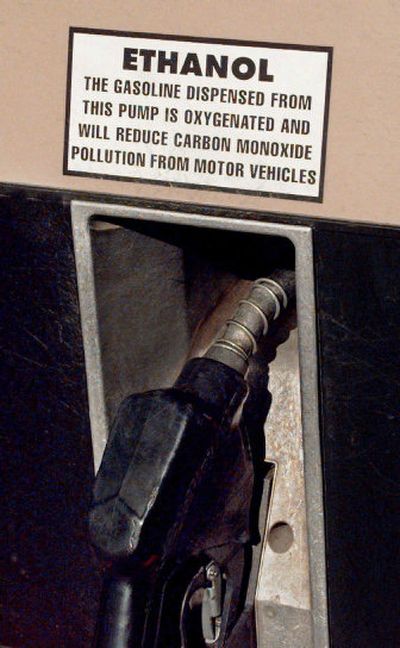Ethanol-blended gas bill wins over former foes

BOISE – Two lawmakers have switched sides on a bill they helped kill last year, boosting chances that gasoline sold in Idaho will eventually contain at least 10 percent fuel made from agricultural products such as corn or straw.
Sen. David Langhorst, D-Boise, and Sen. John McGee, R-Caldwell, opposed the plan that died 5-4 in the Senate Transportation Committee in 2005.
Changes made over the summer have won them over, Langhorst and McGee said separately.
The new measure, backed by the Idaho Farm Federation Bureau, would require gas for cars to be blended with ethanol, as soon as production facilities are built in the state that produce at least 30 million gallons of ethanol annually.
That amount must be made from Idaho-grown crops, according to the bill.
A hearing on the bill was set for today.
Idaho is just the latest state to consider the ethanol requirement.
Currently, Minnesota, Hawaii and Montana have similar statewide mandates, and other governments including Washington state, Missouri and Wisconsin are considering them.
Across America, proponents argue that requiring so-called “E10 gasoline” will slash emissions of pollutants such as carbon monoxide, provide another market for crops used to make the fuel – and reduce U.S. dependence on foreign oil sources, something President Bush advocated in last week’s State of the State address.
“My stepson just enlisted in the Marines,” Langhorst said Monday.
“That’s helped make me acutely aware of what America is doing in the name of oil. It’s time we took some bold steps to encourage the use of alternative energy sources.”
Idaho lawmakers said several key stumbling blocks from last year’s package have been remedied.
“The Farm Bureau did their homework and created a better bill,” said McGee.
For instance, there previously was no requirement that ethanol be produced in Idaho, from Idaho crops, alarming those who feared the state would make the rule change – only to see out-of-state refineries and farmers reap the rewards.
In addition, state Department of Environmental Quality officials said even though ethanol burns cleaner than gasoline, tanker trucks filling gas-station storage tanks could release volatile ethanol fumes into the air that produce ground-level ozone when combined with high temperatures, sunlight and little wind.
That could pose health risks, especially in areas such as Ada and Canyon counties in southwestern Idaho, DEQ officials argued in 2005.
Changes in the current bill would force service stations whose storage tanks aren’t equipped with special vapor recovery systems to sell non-blended fuel between June 15 and Sept. 15.
That addressed DEQ’s concerns, said Martin Bauer, the agency’s air quality administrator in Boise.